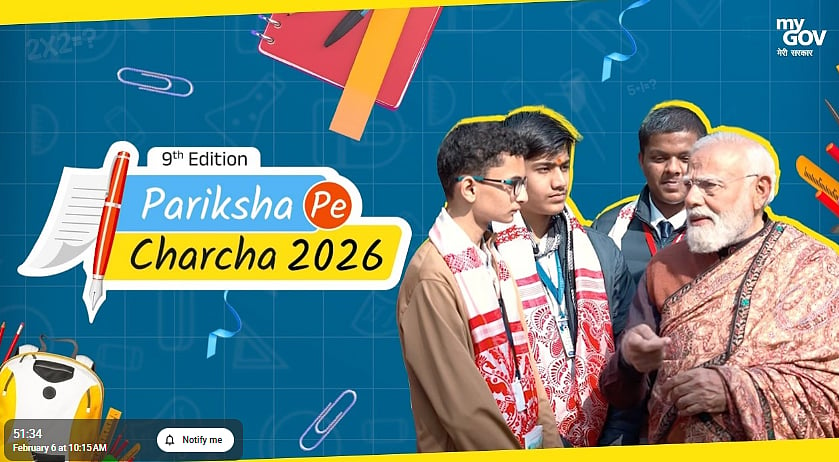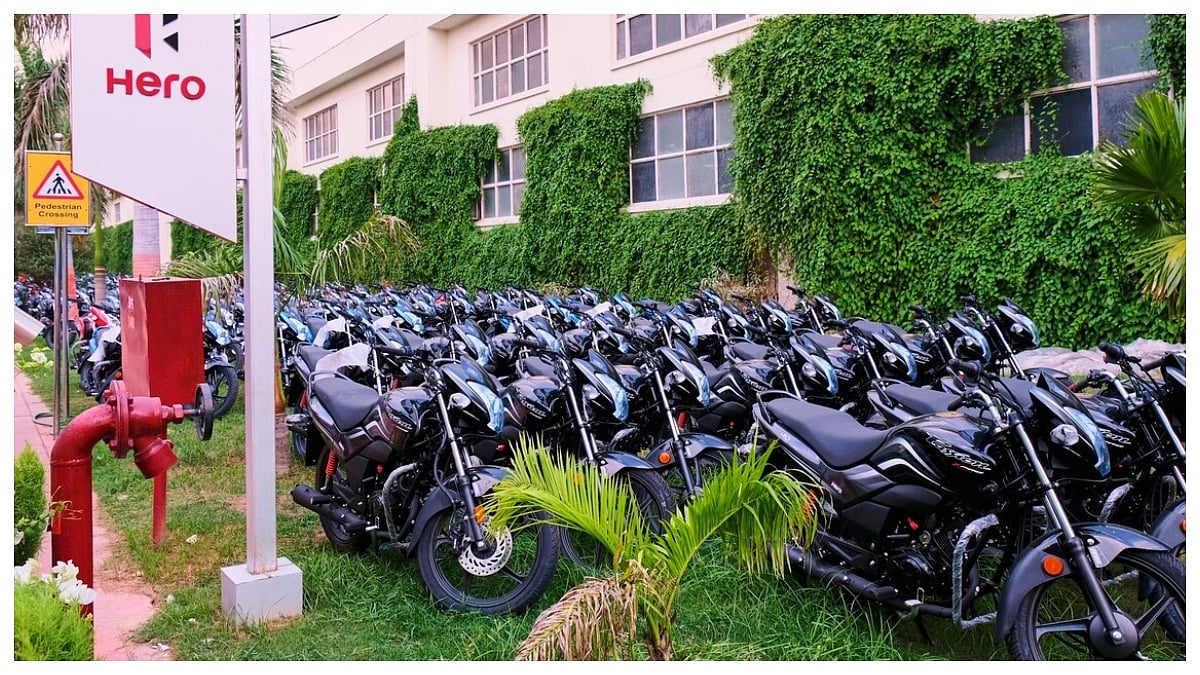Though COVID-19 pandemic has gripped the world, India accounts for over half of the world’s new leprosy patients, according to WHO. Despite India being declared "leprosy-free" in 2005, the country still accounts for over half (almost 60 per cent) of the world's new leprosy patients.
Bihar, Maharashtra, Uttar Pradesh, Odisha, Chhattisgarh, Madhya Pradesh, West Bengal, and Jharkhand contributed 76 per cent of the new leprosy cases, data by National Leprosy Eradication Programme (NLEP) shows.
In the past 18 months or more, there was an estimated 30% to 50% decrease in detecting new leprosy cases across the globe. The impact of the coronavirus pandemic has been particularly hard on people affected by leprosy and their families who were in a vulnerable situation to begin with. Lockdowns and other measures to prevent the spread of the virus have caused many problems at the field level, making access to medical services difficult, causing loss of livelihoods and exacerbating the difficulties that persons affected by leprosy already encounter due to stigma and discrimination.
Yohei Sasakawa, WHO Goodwill Ambassador for Leprosy Elimination speaks with The Free Press Journal on why there is a need to bring back focus on Leprosy as the Covid-19 pandemic has increased the challenges the leprosy-affected community face.
1. Why is there a need to focus on Leprosy and highlight issues faced by the patients especially in view of Covid-19 pandemic?
The impact of the coronavirus pandemic has been particularly hard on people affected by leprosy and their families who were in a vulnerable situation to begin with. We launched the “Don’t forget leprosy” campaign in August 2021 to ensure that efforts against leprosy, also known as Hansen’s disease, are not side-lined amid the coronavirus pandemic. Lockdowns and other measures to prevent the spread of the virus have caused many problems at the field level, making access to medical services difficult, causing loss of livelihoods and exacerbating the difficulties that persons affected by leprosy already encounter due to stigma and discrimination. They must not be forgotten.
According to the Global Leprosy Update for 2020, there was a 37% year-on-year decrease in new cases due to disruptions to case-finding activities. There are concerns that hidden cases will lead to increased transmission and result in more cases with disabilities. On the other hand, while figures vary from country to country, the overall treatment completion rate remains at the same level as the previous year, indicating that stakeholders are working hard to maintain services, even in the midst of the global pandemic.
That’s why we feel it is necessary to meet with those at the top of the country and have them issue a call to eliminate leprosy. Once the COVID situation eases, I want to visit countries and encourage presidents and prime ministers to recognize the importance of this issue and seek their cooperation in helping activities against the disease to resume.
At the same time, I believe that the participation of people who have experienced the disease is also very important. There are so many things that people can do, such as active case-finding, mental support for people undergoing treatment, and awareness-raising. In 2011, the WHO issued guidelines on strengthening the participation of persons affected by leprosy in leprosy services in such areas as a way to improve the quality of leprosy services.
2. What initiatives have been introduced by the foundation in India to spread awareness about Leprosy?
In India, Sasakawa-India Leprosy Foundation (S-ILF) participated along with the Association of People Affected by Leprosy (APAL) and other organisations like Acworth Leprosy Hospital Society for Research, Rehabilitation & Education in Leprosy, Atma Swabhiman, Greater Tenali Leprosy Treatment and Education Scheme Society (GRETNALTES), St Joseph Leprosy Hospital and NLR India Foundation participated in creating awareness and bringing back focus on leprosy through the campaign initiatives.
Sasakawa-India Leprosy foundation (S-ILF) along with 32 organizations including NGOs, organisations of persons affected by leprosy, research institutes and government agencies from Bangladesh, Brazil, India, Indonesia, Nepal, Nigeria, Papua New Guinea, Portugal, Senegal, Sierra Leone, Tanzania, Uganda and the United Kingdom took part in an international campaign to promote the message ‘Don’t forget leprosy’”. Organised by Sasakawa Leprosy (Hansen’s Disease) Initiative, the campaign includes awareness-raising activities and outreach to Governments, webinars targeting youths and healthcare professionals including paramedics like Nurses and ASHAs workers.
3. Can you share some of the activities for World Leprosy Day by Sasakawa Leprosy (Hansen’s Disease) Initiative?
The Initiative has launched a special website (https://gasasakawa.org/) for the Global Appeal to End Stigma and Discrimination against Persons Affected by Leprosy. Inaugurated by WHO Goodwill Ambassador Yohei Sasakawa in 2006 and released in conjunction with World Leprosy Day, the annual Global Appeal underlines the messages that leprosy is curable, treatment is available free of charge throughout the world, and that social discrimination has no place.
As side events of this year’s Global Appeal, the Initiative hosted two webinars on raising awareness of leprosy (“The role of health professionals at the grassroots level” and “The role of young people: sharing discussions from three regions”) as well as a photo contest on social media (https://sasakawaleprosyinitiative.org/latest-updates/initiative-news/1230/). A selection of the best photos, which depict the daily lives of persons affected by leprosy and relief activities, will be displayed on the Global Appeal website.
4. How has an awareness of leprosy as a human rights issue changed perceptions about the disease? What more needs to be done?
I started working on leprosy in the 1970s and have been the WHO Goodwill Ambassador for Leprosy Elimination since 2001. People who should be part of society remain isolated in colonies facing hardships. The more you look into it, the more you see the restrictions they live under, including legal restrictions in some cases. Isn’t it strange that someone cured of a disease can’t take their place in society? I belatedly realized that if the human rights aspect wasn’t addressed, then elimination of leprosy in a true sense would not be possible. That’s when I first approached the United Nations about this in 2003.
In 2007, the Japanese government appointed me as its Goodwill Ambassador for the Human Rights of Persons Affected by Leprosy. Collaboration with the Japanese government led in December 2010 to a UN General Assembly resolution on the elimination of discrimination against persons affected by leprosy and their family members to call on states to full consideration of Principles and Guidelines. The resolution was adopted unanimously by 192 countries.
Discrimination toward persons affected by leprosy and their families should never be tolerated. That’s why the Principles and Guidelines were approved.
Although they are not binding, given the reality that even treaties ratified by states, such as the Convention on the Rights of Persons with Disabilities, the Convention on the Rights of the Child, and the Framework Convention on Tobacco Control, are difficult to implement, we need to think of them as a tool to be used by stakeholders, including persons affected by leprosy, when advocating with governments to fix the problems.
When people are still being discriminated against even after they have been cured, then society has a disease. If we can cure society of this disease—discrimination—it would be truly epoch-making.
5. Anything additional that you want to share with us?
There are more than 1 billion people in the world living with disabilities, including persons affected by leprosy. We need to create an inclusive society where everyone can have an education, find work and get married if they want to. People have the passion and the motivation; often, all they lack is opportunity.
I would like to create a society where everyone feels fully engaged, able to express their opinions, and appreciated. The coming era must be one of diversity, and for that, we need social inclusion. There is such ability and potential in the world, and to have everyone participate in society will create a truly wonderful future.
That’s why it’s important for persons affected by leprosy to have confidence and speak out. To support them, Sasakawa Health Foundation and The Nippon Foundation are helping them to build up their organizational capacity. I’d like to see a society in which everyone is active, able to express their opinions to the authorities with confidence, and their contribution is valued.









